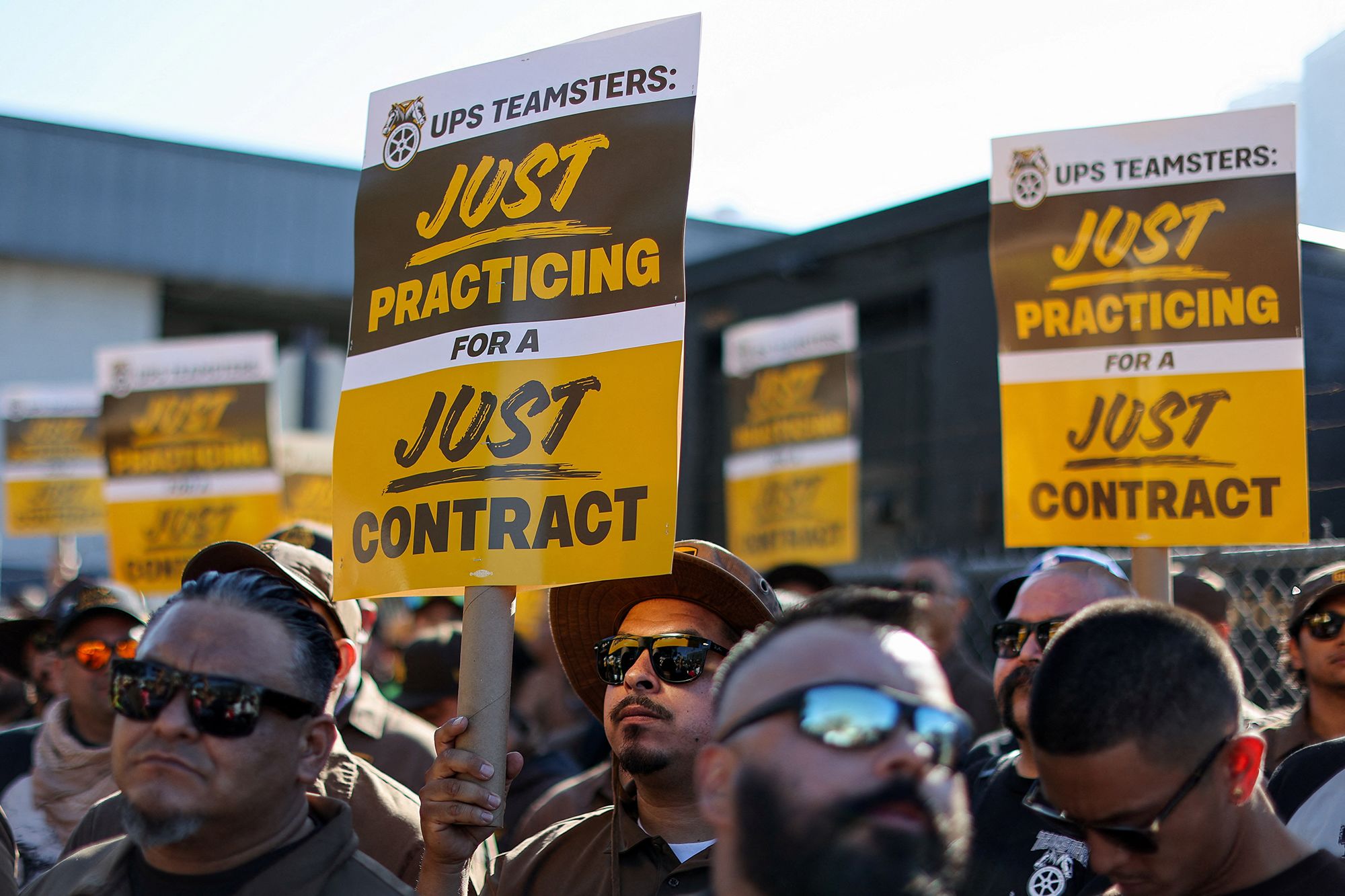With just days to spare before a potential strike, UPS and the Teamsters have successfully reached a tentative agreement on a new five-year labor contract. The deal comes as a relief to both the company and the U.S. economy, preventing a potentially crippling impact on the nation’s logistics network.
The tentative agreement comprises more than 60 changes and improvements to the National Master Agreement, with no concessions from the rank-and-file, according to the Teamsters. The union’s commitment to securing the best contract in UPS history paid off, as they heralded the agreement as “overwhelmingly lucrative” with a multitude of workplace protections and enhancements.
One of the most significant highlights of the deal is the pay raise for existing full- and part-time UPS Teamsters. In 2023, they will receive an increase of $2.75 per hour, with a total wage increase of $7.50 per hour over the contract’s duration. Existing part-time workers will see their wages raised to no less than $21 per hour immediately and receive an average total wage increase of 48% over the next five years. New part-time employees will start at $21 per hour and progress to $23 hourly.
Additionally, the agreement includes changes in driver classifications, provisions for days off and seasonal work, and measures to ensure heat safety in vehicles. UPS has committed to adding more jobs and filling open positions, further benefiting the workforce.
Local business and government leaders have expressed their approval and appreciation for the agreement, recognizing the positive impact it will have on UPS employees and the community.
While the sides have come to terms on the tentative contract, the next crucial step involves the voting and ratification process. Representatives from all 176 UPS Teamster locals are scheduled to meet on July 31 to review and recommend the agreement. Electronic voting for union members will take place from August 3 to August 22.
Although the threat of a strike has been averted, the negotiation’s impact will have lasting effects on the company. UPS has made significant concessions, and it remains to be seen how the resulting financial burden will be distributed between consumers, businesses, and UPS itself. As the company announces its next general rate increase, expected in the fall, it will be interesting to observe the implications on pricing and the market.
In conclusion, the UPS and Teamsters’ tentative labor contract agreement has successfully resolved a potential strike crisis, securing favorable benefits for employees and providing stability to the U.S. logistics network. The deal represents a collaborative effort to create a mutually beneficial outcome for all parties involved.


